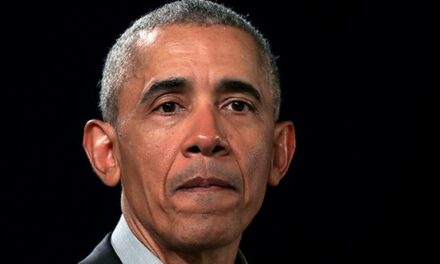We support our Publishers and Content Creators. You can view this story on their website by CLICKING HERE.

No one familiar with the increasingly dangerous escalation along Israel’s northern border seems to doubt that war between the Jewish state and Hezbollah is both inevitable and fast approaching. What’s far less clear is how the United States plans to approach that coming confrontation.
Hezbollah, which has mounted nearly daily rocket and drone attacks on Israel from southern Lebanon since Hamas’ slaughter of 1,200 Israelis on October 7, is stepping up those attacks; flaunting its new capabilities to surveil Israel from the air; vowing to fight “without constraints, rules or limits;” and attracting pledges of participation from thousands of fighters from other Iranian-backed groups across the region.
Israeli Prime Minister Benjamin Netanyahu, meanwhile, has announced that as the Israeli Defense Forces wind down their operations in Gaza, “we will face north” and do what’s necessary to end Hezbollah’s relentless attacks.
At the moment, though, Washington is sending mixed messages about how it would approach such a war and what it would do in response. In recent days, senior Biden administration officials told their visiting Israeli counterparts that Washington would “offer Israel the security assistance it needs” if war erupts. But the chair of the Joint Chiefs of Staff undercut that message, subsequently warning that Iran might join the fight with Hezbollah and Washington would be hard-pressed to strengthen Israel’s air defense as Hezbollah seeks to overwhelm Israel’s Iron Dome system with its arsenal of more than 100,000 rockets.
The world, which is currently watching Washington’s response to Israel’s war with Hamas and assessing U.S. resolve to defend its interests, will be watching even more closely if war erupts between Israel and Hezbollah. After all, Hezbollah is a far more dangerous and potent adversary than Hamas, and war with that group would prove far bloodier and more destructive for Israel than its current war in Gaza – especially if Iran and the terror groups in the “axis of resistance” that it coordinates join the fight.
Thus, the U.S. approach to an Israel-Hezbollah war – i.e., the extent to which Washington sticks by its closest regional ally as deaths mount in southern Lebanon – will have huge implications for the strategi calculations to come in Tehran, Moscow, and Beijing as they each plot their next expansionist moves.
With all that in mind, Washington should, at a minimum, take the following four steps now as the war approaches.
First, President Biden and his team should lay the groundwork for full-scale U.S. support by condemning Hezbollah’s attacks in no uncertain terms and making clear that no nation should have to live under such constant attack.
In addition, Washington should pressure its allies and the global community to adopt that U.S. approach, noting that – as with Russia’s attempted conquest of Ukraine – the world should firmly oppose efforts that undermine territorial integrity and, in turn, threaten the rules-based international order.
Second, Biden and his team should preemptively declare full-scale U.S. support for Israel in its coming confrontation with Hezbollah, eliminating any looming uncertainty about what Washington will do if war erupts.
In particular, Washington should make clear that it will provide both the diplomatic backing and military resources needed for Israel to eliminate the immediate threat to its north and contain Hezbollah over the long term.
Third, Biden and his team should call for the full implementation of UN Security Council Resolution 1701 (or an equivalent on-the-ground reality), which the body adopted in connection with ending Israel’s war with Hezbollah in 2006.
That resolution called for Israel’s withdrawal from Lebanon, for Hezbollah’s withdrawal from a proposed buffer zone between the Blue Line on the Israel-Lebanon border and the Litani River, and for Lebanese and United Nations forces to patrol that zone and keep the peace. Hezbollah, however, is flagrantly violating 1701 by “stationing its forces in the zone” and launching rocket attacks from that area.
And fourth, Biden and his team should condemn Iran for sponsoring Hezbollah, Hamas, and other groups in its terror network, and also use the opportunity to confront Tehran more forcefully on a broader front.
That broader approach would include scrapping hopes of resurrecting the loophole-ridden 2015 global nuclear deal with Iran, pressing Tehran harder over its recent nuclear advances, and restoring various sanctions against Iran that the president has waived. It also would include no longer legitimizing Tehran’s farcically restrictive “democracy” by letting the regime run absentee voting stations in the United States.
A war with Hezbollah will test Israel far more on the battlefield than its current war with Hamas. That, in turn, will raise the stakes for Washington, as its adversaries around the world assess U.S. resolve amid what will surely be a very bloody confrontation.
About the Author and His Expertise
Lawrence J. Haas is a senior fellow at the American Foreign Policy Council and the author of, most recently, The Kennedys in the World: How Jack, Bobby, and Ted Remade America’s Empire (Potomac Books).

 Conservative
Conservative  Search
Search Trending
Trending Current News
Current News 




